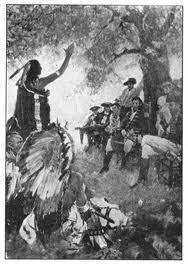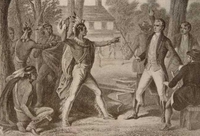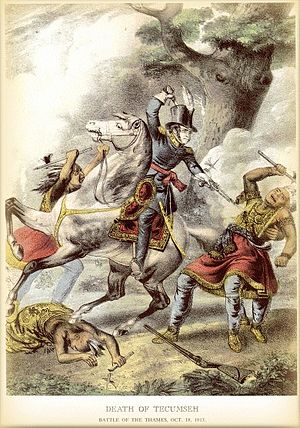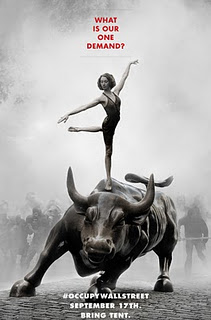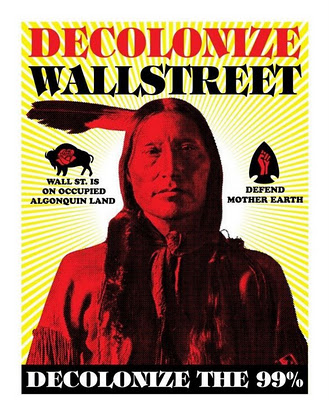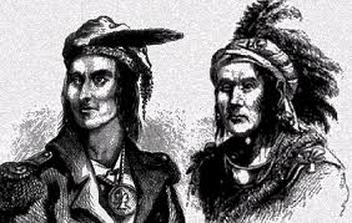 Tecumseh and The Prophet
Tecumseh and The Prophet
I created this website for my graduate thesis, earned in my early fifties, a twining together of all the strands of my life and my thinking always aimed at relieving the dis-ease I've felt my entire life. You feel the same dis-ease, that's why your here. I am presently an adjunct professor of philosophy and political science at a small private university in Chicago working with students and faculty in this very same pursuit. Who are we as human beings, and how can we best live authentically, with our true selves and the true selves of others within our rich ecology comprised of nothing less than other true beings all inextricably bound together?
This is my life's work. I hope you join me and make it yours.
Love,
Jeff Tangel
This is my life's work. I hope you join me and make it yours.
Love,
Jeff Tangel
The Tecumseh Project:
People coming together towards a revolution in values
"Indigenous cultures may show us an image of a future by which we can escape our present"
-Paul Hawken, Blessed Unrest*
In the late 18th and early 19th century the Shawnee Chief Tecumseh united the tribes east of the Mississippi in a heroic effort to expel the relentless white settlers and establish a secure homeland for native peoples. His younger brother, the prophet Tenskwatawa, foretold the end of native culture unless this invasion was resisted. We know from history that the Prophet was right. When Tecumseh died fighting the Americans near Detroit in 1813, the revolution devolved into regional clashes ending with a total defeat and near extermination of native culture. Many do not realize that this was the epochal philosophical and ecological event of modern western history. It was the ultimate clash of cultures, a battle between the never satisfied expansionist settlers and those who valued community and sustainability above individualism and accumulation.
This website humbly takes Tecumseh's name as metaphor and symbol for our work to reinvent the world.
The Occupy movements growing across the country are born of deep frustration and disillusionment. They are manifestations of a healthy human heart fighting off a deadly infection and so signal that there are people everywhere ready to begin a new conversation about what it means to live full lives of meaning. This process requires deep thinking about some of our most widely held assumptions and we can't be fearful about asking these questions. We see now with some clarity what the concentration of wealth and power has wrought: a privileged class that lives largely unattached to, and without concern for either the general welfare, the plight of the poor and suffering or the health of the environment. Most of us feel these people should be ashamed, and we are aghast to see that they are not. We are beginning to understand that the 30 year experiment with unfettered capitalism and expansionist globalization has served the needs of the wealthy and powerful and has wreaked havoc for the wider populations and the ecology of the planet. Thus we must ask ourselves difficult questions about which values we truly hold dear and will work hard to manifest: those that underpin and drive the people who believe in and practice competitive capitalism? Or are there other values we hold dear that we want manifested above market ideologies?
The Project employs a montage of academics and pop culture, philosophy, religion and native culture assembled to reveal widespread and multiple commonalities in an effort to incite a wholly peaceful revolution against the values that underpin expansionist capitalism. I hope to open a space that enables people to think about what they really want; we hope to enable people to find and live meaningful lives of purpose in strong sustainable communities. Importantly, we do not seek to romanticize native cultures nor indict wholly white settlers. The epochal clash was between the systemic world view of each, and the boundaries of each were porous. Many natives and settlers mixed harmoniously in trade and marriage; like all people, they shared a natural common humanity. But the dominant paradigm of the white settlers--the expansionist and accumulative frame constructed by the elites--prevented ongoing harmony. Pablo Abeita, a Christian Brothers educated native governor of Isleta Pueblo, New Mexico in the late 19th century described the difference:
"The culture and civilization of the Whiteman are essentially material; his measure of success is, 'How much property have I acquired for myself?' The culture of the Redman is fundamentally spiritual; his measure of success is, 'How much service have I rendered to my people?'" [1]
Although there is no doubt that the clash of cultures was epochal, we do not long for a time past--there is no going back. We work instead for a blending of the world's wisdom to rebuild our present and seed our future. The heart of the Native American still beats, and it is the same heart that beats in all of us. We are witness to an evolutionary process in which apparent strengths reveal their illegitimacy and weakness, and apparent weaknesses are rediscovered as powerful tools for living happy and sustainable lives. Our time is a time of great change.
This website humbly takes Tecumseh's name as metaphor and symbol for our work to reinvent the world.
The Occupy movements growing across the country are born of deep frustration and disillusionment. They are manifestations of a healthy human heart fighting off a deadly infection and so signal that there are people everywhere ready to begin a new conversation about what it means to live full lives of meaning. This process requires deep thinking about some of our most widely held assumptions and we can't be fearful about asking these questions. We see now with some clarity what the concentration of wealth and power has wrought: a privileged class that lives largely unattached to, and without concern for either the general welfare, the plight of the poor and suffering or the health of the environment. Most of us feel these people should be ashamed, and we are aghast to see that they are not. We are beginning to understand that the 30 year experiment with unfettered capitalism and expansionist globalization has served the needs of the wealthy and powerful and has wreaked havoc for the wider populations and the ecology of the planet. Thus we must ask ourselves difficult questions about which values we truly hold dear and will work hard to manifest: those that underpin and drive the people who believe in and practice competitive capitalism? Or are there other values we hold dear that we want manifested above market ideologies?
The Project employs a montage of academics and pop culture, philosophy, religion and native culture assembled to reveal widespread and multiple commonalities in an effort to incite a wholly peaceful revolution against the values that underpin expansionist capitalism. I hope to open a space that enables people to think about what they really want; we hope to enable people to find and live meaningful lives of purpose in strong sustainable communities. Importantly, we do not seek to romanticize native cultures nor indict wholly white settlers. The epochal clash was between the systemic world view of each, and the boundaries of each were porous. Many natives and settlers mixed harmoniously in trade and marriage; like all people, they shared a natural common humanity. But the dominant paradigm of the white settlers--the expansionist and accumulative frame constructed by the elites--prevented ongoing harmony. Pablo Abeita, a Christian Brothers educated native governor of Isleta Pueblo, New Mexico in the late 19th century described the difference:
"The culture and civilization of the Whiteman are essentially material; his measure of success is, 'How much property have I acquired for myself?' The culture of the Redman is fundamentally spiritual; his measure of success is, 'How much service have I rendered to my people?'" [1]
Although there is no doubt that the clash of cultures was epochal, we do not long for a time past--there is no going back. We work instead for a blending of the world's wisdom to rebuild our present and seed our future. The heart of the Native American still beats, and it is the same heart that beats in all of us. We are witness to an evolutionary process in which apparent strengths reveal their illegitimacy and weakness, and apparent weaknesses are rediscovered as powerful tools for living happy and sustainable lives. Our time is a time of great change.
“I am convinced that if we are to get on the right side of the world revolution, we as a nation must undergo a radical revolution of values. We must rapidly begin the shift from a “thing-oriented” society to a “person-oriented” society. When machines and computers, profit motives and property rights are considered more important than people, the giant triplets of racism, materialism, and militarism are incapable of being conquered.”
Dr. Martin Luther King, Jr., Beyond Vietnam: A Time to Break the Silence, Riverside Church, NYC April 4, 1967
The evolutionary process, if we are to survive at all, means these social malignancies that Dr. King warned us about, and more, will be overcome. We suffer now, trapped in an unnatural economic paradigm that constructs and consumes our lives and forces competition while crowding out empathy, compassion and cooperation, and even co-existence. It is this deeply flawed ideology and its consequence hierarchy that causes widespread social and ecological harm (which we will argue, are the same thing). Moreover, pretending to be science, this ideology now pervades nearly everything we see and do, making it difficult to imagine alternatives. Yet it is our contention that humans are naturally inclined towards community, towards empathy and towards helping others. And as a healthy environment depends on the flourishing participation of all its diverse elements, so too does a healthy society depend on the flourishing participation of its diverse peoples. Yes, horizontal democracy is natural. [2] As Christopher Boehm, Director of the Jane Goodall Research Center at the University of Southern California argues in his new book, MORAL ORIGINS: The Evolution of Virtue, Altruism, and Shame, "we have been 'vigilantly egalitarian for tens of thousands of years." [3] Though none of this is easy, we are beginning to see these traits blossom as the oppressive and destructive ideology implodes.
I believe that happiness = sustainability. This is a key formulation underlying my work and I encourage you to think about it deeply, contest it, argue, qualify it and then think about it some more. Very often solutions appear in doorways we least expect.
Human needs, from food to fulfillment, are best provided by human beings, not systems predicated on, and mired in ideologies. I am therefore a pragmatic explorer and pursue my work with the guiding principle that our means and our ends are the same. My inquiry is ecumenical, in the broadest sense--I welcome all. I will however criticize traditions when they compromise what is best in humanity for their own purposes or in acquiescence to the dominant economic paradigm. Again, we cannot replace one dogma with another but, but instead I am to facilitate the organic growth of many ideas.
And so, ideas are offered to implement and for further study. I ask questions about the meaning of work and try to enable readers to find answers. Like you I wonder about happiness and its pursuit so we have a section on Happiness. Like you I’ve found connections between many seemingly disparate ideas and try to show their commonalities with the hope of seeding a more powerful synergy.
This website is not a cataloger of critical news, or a news service at all. Many others are fulfilling this important role. Instead I aim to present ideas, offer substantive critiques and, I hope, provocative analysis. I will use news stories to elucidate points and/or ground analysis, but the intent is to offer ideas that have a shelf-life far beyond any news cycle. I will post and link to the writings of others whose ideas merit long attention.
Importantly, I want to have fun with this—although the situation is dire, The Tecumseh Project is not a strident desperate call. Our work towards a better understanding will keep us joyfully attentive and present (indeed doing is being), and deliver us from the neoliberal ideological trap. So I’ll use humor, art, sarcasm and wit, talk like we’re in a bar, in a house of worship or in a university symposium to reach and bring together as wide an audience as possible. Always I aim to speak plainly.
All that said, this is not a reform movement—no tinkering will emancipate us. No tinkering will stop the headlong rush towards individual, community and planetary destruction. We mean to foment a revolution:
A revolution in Values
Dear neoliberal ideologues,
We don’t want what you’re selling, we don’t want to borrow from you, we don’t want to work for you and we don’t want to study what you think is important. We don’t aspire to be you. We repudiate you. May the house you built fall and may we welcome you so that humanity may flourish as a garden among the ruins.
EJT
*Hawken, Paul. Blessed Unrest: How the Largest Social Movement in History is Restoring Grace, Justice and Beauty to the World. Penguin Books 2007, page 99
[1] The Gospel of the Redman, Ernest Thompson Seton and Julia Seton, pg.1 1963; original edition 1936.
[2] In fact the idea of democracy must be expanded beyond human constituents, a process first begun by Aldo Leopold in A Sand County Almanac (1949) continuing now with great intensity in response to the growing ecological threat beginning with the work of French philosopher Bruno Latour and his concept of a "parliament of things" in The Politics of Nature (2004) and especially with the growing Object Oriented Ontology philosophical movement including the writings of Graham Harman, Tim Morton, Jane Bennett, Levi Bryant and Ian Bogost.
[3] Noble Savages, Jag Bhalla's review of Moral Origins: The Evolution of Virtue, Altruism, and Shame. Christopher Boehm, Basic Books, 2012, in the Wilson Quarterly
I believe that happiness = sustainability. This is a key formulation underlying my work and I encourage you to think about it deeply, contest it, argue, qualify it and then think about it some more. Very often solutions appear in doorways we least expect.
Human needs, from food to fulfillment, are best provided by human beings, not systems predicated on, and mired in ideologies. I am therefore a pragmatic explorer and pursue my work with the guiding principle that our means and our ends are the same. My inquiry is ecumenical, in the broadest sense--I welcome all. I will however criticize traditions when they compromise what is best in humanity for their own purposes or in acquiescence to the dominant economic paradigm. Again, we cannot replace one dogma with another but, but instead I am to facilitate the organic growth of many ideas.
And so, ideas are offered to implement and for further study. I ask questions about the meaning of work and try to enable readers to find answers. Like you I wonder about happiness and its pursuit so we have a section on Happiness. Like you I’ve found connections between many seemingly disparate ideas and try to show their commonalities with the hope of seeding a more powerful synergy.
This website is not a cataloger of critical news, or a news service at all. Many others are fulfilling this important role. Instead I aim to present ideas, offer substantive critiques and, I hope, provocative analysis. I will use news stories to elucidate points and/or ground analysis, but the intent is to offer ideas that have a shelf-life far beyond any news cycle. I will post and link to the writings of others whose ideas merit long attention.
Importantly, I want to have fun with this—although the situation is dire, The Tecumseh Project is not a strident desperate call. Our work towards a better understanding will keep us joyfully attentive and present (indeed doing is being), and deliver us from the neoliberal ideological trap. So I’ll use humor, art, sarcasm and wit, talk like we’re in a bar, in a house of worship or in a university symposium to reach and bring together as wide an audience as possible. Always I aim to speak plainly.
All that said, this is not a reform movement—no tinkering will emancipate us. No tinkering will stop the headlong rush towards individual, community and planetary destruction. We mean to foment a revolution:
A revolution in Values
Dear neoliberal ideologues,
We don’t want what you’re selling, we don’t want to borrow from you, we don’t want to work for you and we don’t want to study what you think is important. We don’t aspire to be you. We repudiate you. May the house you built fall and may we welcome you so that humanity may flourish as a garden among the ruins.
EJT
*Hawken, Paul. Blessed Unrest: How the Largest Social Movement in History is Restoring Grace, Justice and Beauty to the World. Penguin Books 2007, page 99
[1] The Gospel of the Redman, Ernest Thompson Seton and Julia Seton, pg.1 1963; original edition 1936.
[2] In fact the idea of democracy must be expanded beyond human constituents, a process first begun by Aldo Leopold in A Sand County Almanac (1949) continuing now with great intensity in response to the growing ecological threat beginning with the work of French philosopher Bruno Latour and his concept of a "parliament of things" in The Politics of Nature (2004) and especially with the growing Object Oriented Ontology philosophical movement including the writings of Graham Harman, Tim Morton, Jane Bennett, Levi Bryant and Ian Bogost.
[3] Noble Savages, Jag Bhalla's review of Moral Origins: The Evolution of Virtue, Altruism, and Shame. Christopher Boehm, Basic Books, 2012, in the Wilson Quarterly
Life of Tecumseh ...AND OF HIS BROTHER THE PROPHET;WITH A HISTORICAL SKETCH OF THE SHAWANOE INDIANS BY BENJAMIN DRAKE, AUTHOR OF THE LIFE OF BLACK HAWK, TALES FROM THE QUEEN CITY, &c.CINCINNATI:PRINTED AND PUBLISHED BY E. MORGAN & Co. 1841. Stereotyped by J.A. James,Cincinnati. Dayton History Books
|
From: The Gospel of the Redman. 1937
"In the summer of 1912, I met Father A.M. Beede, a Jesuit missionary at Standing Rock, Fort Yates, North Dakota. He had gone there twenty-five years before, an enthusiastic young religionist, convinced that the highest calling on earth was that of missionary--the noblest triumph would be the conversion of these Indians to his particular form of Christianity. He began , as all sincere and devoted missionaries do, by learning the language and also studying the philosophy of the people he hoped to influence. When I first saw him he had ceased to call them 'benighted heathens' and was already admitting that they were a noble race with high standards of religion and ethics. Not long afterwards he admitted to me that the Medicine Lodge of the Sioux Nation was 'a true Church of God, and we have no right to stamp it out.' When I went to Standing Rock (Fort Yates, N.D.) with a dozen of my students in 1927, I sought for Father Beede, but found him not. Instead I found him 'Lawyer Beede" and heard the story of a noble and sincere messenger. 'Yes,' he said, 'I realized that the Sioux were worshipers of the one true God, and their religion was one of truth and kindness. They do not need a missionary, but they do need a lawyer to defend them in the Courts. 'So I abandoned my role as missionary and studied law. After some years I was admitted to the bar of North Dakota, and now I am their permanent official advocate in all cases involving Indians that come into the Court. 'Of course the missionaries have unfrocked me, and the Indian agents hate me. The Indians can pay me little or nothing for my services. I live in a little cabin built by myself and cook my own meals. 'But I glory in the fact that I am devoting the last of my days and my strength to the service of this noble, downtrodden Race.'" Ernest Thompson Seton, The Gospel of the Redman. 1937 (PDF) |
|
|
|
